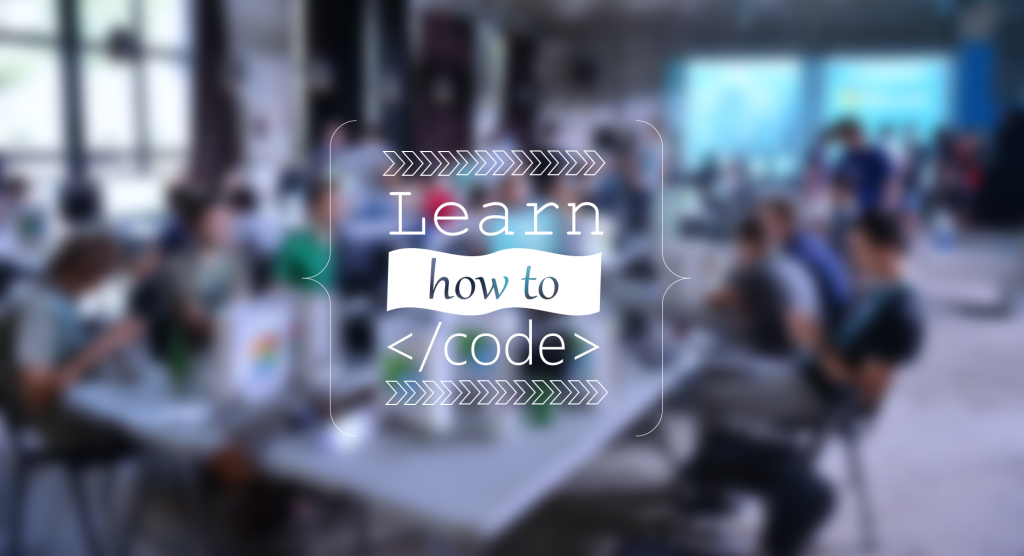
Kick-start your coding journey today
Until fairly recently computer science education and by extension, the concept of coding, seemed impenetrable to many people, but today, coding is considered a key employment skill, increasingly integrated – or soon to be integrated – into school curriculums around Europe. But why is this?
Coding is the backbone of almost everything we do in today’s digitized world. From the way we live and learn to the ways we conduct research, do business, create, and interact with each other, billions of lines of code make it all come together.
Because of coding’s importance, computer science has become fundamental to the modern workplace – so much so that the European Commission predicts 90% of jobs in Europe will require digital skills by 2020. But with 45% of EU business leaders stating that a lack of skills is holding back the digital economy, it’s clear more of us need to rise to the challenge and get coding.
Despite coding becoming increasingly mainstream, getting started can still seem a bit daunting – on par with learning a new language. Thankfully, we can all come together to spread the passion for coding during events like Hour of Code, and working with partners such as CoderDojo to help inspire and introduce younger generations to the wonders of coding.
This year, Hour of Code is running from 3-9 December, as a global event dedicated to inspiring and encouraging people of all ages around the world to dive into the fascinating world of coding.
To kick things off, here’s a quick introduction to coding and some useful tools to help you get started – happy coding!

A programming language provides a framework allowing us to tell computers (big and small) what to do. This framework is made up of a series of codes – the specific instructions that tell these devices what to do. There are many different programming languages, some more complex than others, and some which are better suited to certain tasks than others.

As coders develop their skills, they will inevitably end up specialising in a specific area that they find particularly interesting or that best suits their business need. We’ve included below some of the main specialities:
The front-end refers to visual and interactive elements within an internet browser – websites and web applications. Front-end developers write code using languages like HTML, CSS and JavaScript. This fast-moving space requires knowledge of the ever-changing software and hardware used to access the web. With a huge range of different screen sizes and resolutions, as well as operating systems and browsers, coding for the front-end requires developers to plan ahead to ensure websites and web apps function as intended.
The back-end serves to support and provide all the information required for the front-end to operate. Communicating both directly and via intermediate programs, back-end applications are hosted on a web server and built with languages including Python, Ruby, C++, C# and Java. Key challenges involve building software that is able to locate and deliver data while integrating elements such as user authentication and permissions.
Software development is a broad term and can refer to creation of commercial applications for business or consumer markets, like Microsoft Office, and even the programs that controls consumer products like washing machines, refrigerators and cars. With the emergence of the Internet of Things (IoT), embedded software has become more sophisticated as manufacturers release products that connect to the internet – commonly known as ‘smart’ devices. The processes and languages used across software development are incredibly broad and vary dependent on the task in hand. C# is primary language used for developing on Microsoft platforms, and C++ is popular for processing-power intensive applications that demand a lot from hardware. C is the predominant language used when coding for embedded systems.
The emergence of the smartphone over the last decade has led to a whole new family of devices for developers to create for. As with web development, the vast array of specs found across smartphones, phablets and tablets can make developing apps for mobile a challenge. For example, developers have to consider a device’s specific user interface, not to mention the operating system it runs on. While mobile app development is pretty similar to web development in a lot of ways, this challenge does result in more software being specifically developed to take advantage of features specific to particular devices – a problem Microsoft addressed with the launch of Universal Apps for Windows 10.
From niche beginnings, recent years have seen video gaming grow into the world’s largest entertainment industry. The process of programming video games can differ significantly depending on the size of the project. While commercial games typically cost tens of millions of dollars to create, requiring the combined efforts of hundreds of people, the rise of mobile gaming and improved online distribution systems has resulted in a resurgence of the independent games market driven by individuals and small development teams.
The languages and approach used will also vary based on platform the game is based on e.g. PC, consoles like the Xbox One X, mobile etc. C++, however, is the most popular development language for games and is considered the industry standard.
Minecraft: Voyage Aquatic
Minecraft teamed up with four YouTube creators – AmyLee33, Netty Plays, iBallisticSquid and Tomohawk – for this year’s Minecraft Hour of Code. These creative YouTubers guide participants along their journey through caves, ruins and underwater reefs to solve puzzles – all while learning coding concepts in a fun, digestible way.
Voyage Aquatic presents 12 unique challenges, focusing on how to use loops and conditionals, two fundamental concepts in computer science. The tutorial also includes a ‘free play’ level for participants to apply what they learn in the prior puzzles and use coding to build imaginative underwater creations.

Hour of Code – Working in partnership with Code.org, a non-profit dedicated to expanding access to computer science, each year Microsoft supports the Hour of Code initiative – an annual event encouraging participants to give up 60 minutes for an introduction to code. While Hour of Code takes place in December, anybody can use Hour of Code resources anytime. Visit code.org/learn to find online tutorials for beginners teaching simple drag and drop programming, as well as introductions to specific languages, like JavaScript or Python.
Kodu Game Lab – 2009 saw Microsoft launch the Kodu Kup, an annual coding competition challenging young people to develop their own games with user-friendly Kodu Game Lab tools. Like Hour of Code, these tools are available all year round and are a great way to enter the world of coding. Use the links below to download Kodu Game Lab and get started with some tutorials.
Card 2 – Build a main character
Small Basic – Microsoft Small Basic combines a fun and friendly learning environment with a very simple programming language. In just a few lines of code, a user can be well on their way to creating their very own game. Based on .Net technology, skills acquired can be applied to other .Net programming languages like Visual Basic. You can download Small Basic here.
CodeAcademy – Accessible and free to use, CodeAcademy is one of the most popular online resources to learn and develop coding skills. To date, over 25 million people have already used the site’s tutorials to get started. Users can select from a range of languages and technologies including JavaScript, HTML, SQL, Ruby and jQuery.





















